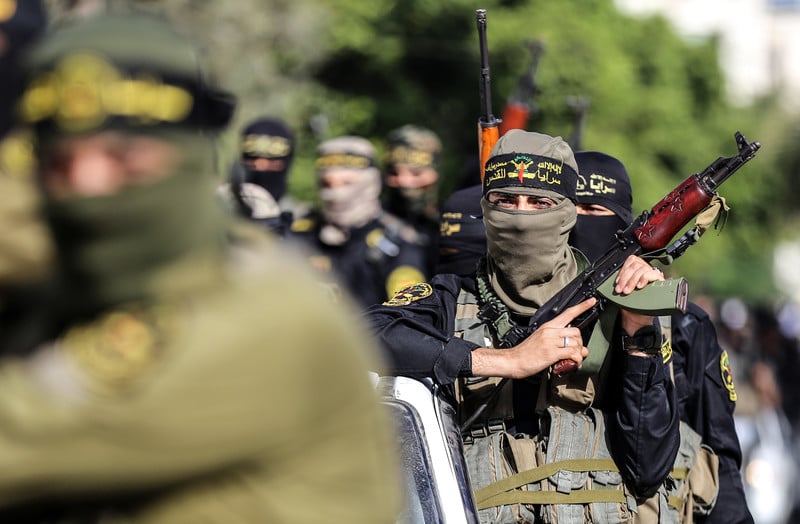RE: Palestinian Talks, lectures, & interviews.
SUBTOPIC: A Model Government
⁜→ P F Tinmore, et al,
I did not answer the question because the territory was not taken by force.
This is another phony leg that the Hostile Arab Palestinians like to rest upon.
Consider:
Relative to the Law about the use of force, → what it actually says is:
(IF-THEN #1) IF, as you claim, Palestine had borders from 1924, THEN it is a domestic issue and NOT a violation of the "use of force against the territorial integrity or political independence of any state."
(IF-THEN #2) IF, you claim the use of force by Israel against the Palestinians, THEN you are claiming that Israel is one State Party and Palestine is another State Party, thus the use of the Arab League Forces is in violation of the "use of force against the territorial integrity or political independence of Israel."
You cannot have it both ways.
(THE ENTANGLED CLAIM)
However... it is a matter of record that "After the 15th May, 1948, Palestine will continue to be a legal entity but it will still not be a sovereign state because it will not be immediately self-governing. The authority responsible for its administration will, however, have changed." (Memorandum "A") to A/AC.21/UK/42) The Arab Palestinians had not self-governing institution in 1948. In fact, until 1967, the entirety of the territory in dispute was under the control and leadership of either Israel or an Arab League party. SO! → It was never an act of one "State" (Israel) against the a Palestinian State, Israel but forces of the Arab League.
Further, soon after the Armistice came into force, the Gaza Strip came under an Egyptian Military Governorship, and the West Bank was Annexed by Jordan. So where are the Palestinians all this and what legitimacy do they have?
Even by 1988, when Jordan cut all ties with all holdings west of the Jordan River, the Arab Palestinians did not have a functioning government of the self-governing institutions to complete a "state." (Convention on Rights and Duties of a State)
( ≈ Ω )
II did not answer your question directly because it veered away from the central issues AND because I did not want to get it entangled with the other important issue.

Most Respectfully,
R
SUBTOPIC: A Model Government
⁜→ P F Tinmore, et al,
(COMMENT)So, you believe that taking land by force is legal?
You are ducking me question.
I did not answer the question because the territory was not taken by force.
This is another phony leg that the Hostile Arab Palestinians like to rest upon.
Consider:
Rule 24. Each party to the conflict must, to the extent feasible, remove civilian persons and objects under its control from the vicinity of military objectives.
Relative to the Law about the use of force, → what it actually says is:
Article 2(4) UN Charter said:All Members shall refrain in their international relations from the threat or use of force against the territorial integrity or political independence of any state, or in any other manner inconsistent with the Purposes of the United Nations.
(IF-THEN #1) IF, as you claim, Palestine had borders from 1924, THEN it is a domestic issue and NOT a violation of the "use of force against the territorial integrity or political independence of any state."
(IF-THEN #2) IF, you claim the use of force by Israel against the Palestinians, THEN you are claiming that Israel is one State Party and Palestine is another State Party, thus the use of the Arab League Forces is in violation of the "use of force against the territorial integrity or political independence of Israel."
You cannot have it both ways.
(THE ENTANGLED CLAIM)
However... it is a matter of record that "After the 15th May, 1948, Palestine will continue to be a legal entity but it will still not be a sovereign state because it will not be immediately self-governing. The authority responsible for its administration will, however, have changed." (Memorandum "A") to A/AC.21/UK/42) The Arab Palestinians had not self-governing institution in 1948. In fact, until 1967, the entirety of the territory in dispute was under the control and leadership of either Israel or an Arab League party. SO! → It was never an act of one "State" (Israel) against the a Palestinian State, Israel but forces of the Arab League.
Further, soon after the Armistice came into force, the Gaza Strip came under an Egyptian Military Governorship, and the West Bank was Annexed by Jordan. So where are the Palestinians all this and what legitimacy do they have?
Even by 1988, when Jordan cut all ties with all holdings west of the Jordan River, the Arab Palestinians did not have a functioning government of the self-governing institutions to complete a "state." (Convention on Rights and Duties of a State)
( ≈ Ω )
II did not answer your question directly because it veered away from the central issues AND because I did not want to get it entangled with the other important issue.
Most Respectfully,
R

